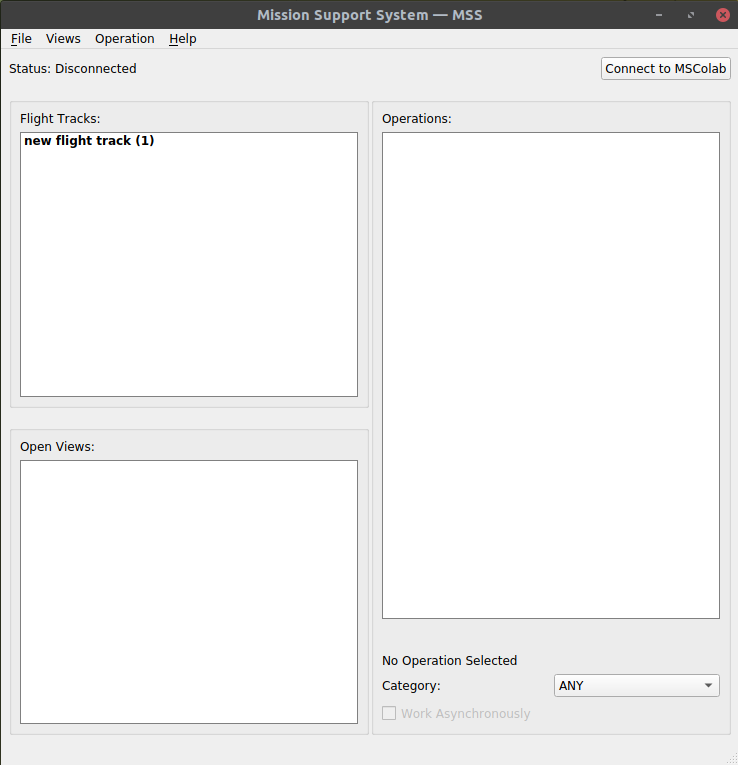Install
Install by pixi
The Mission Support System (MSS) including a Web Map Service (MSWMS), a Collaboration Server (MSColab) and a Graphical User Interface (MSUI) is available as a conda-forge package.
This channel conda-forge has builds for linux-64, osx-64, win-64, osx-arm64
The conda-forge github organization uses various automated continuous integration build processes.
In 2024, the workflow that has packages co-installed from Anaconda’s channel and conda-forge is no longer supported. We recommend since version 10.0.0 of MSS to use pixi for an installation. Get pixi from https://pixi.sh/latest/ for your operation system.
You can now decide if you want to install mss as global or a project.
Global Installation
You can install mss globally without defining a project first. This method is practical when you are interested in starting the client and don’t need server configurations.
pixi global install mss
Usage
msui
mswms -h
mscolab -h
mssautoplot -h
Updating
pixi global update mss
Project Installation
Initialize a new project and navigate to the project directory:
pixi init MSS
cd MSS
Use the shell command to activate the environment and start a new shell in there.
pixi shell
Add the mss dependencies from conda-forge.
(MSS) pixi add mss
Usage
Always, when you want to start mss programs after its installation,
you have to activate the environment by pixi shell in the project dir.
On the very first start of msui, it takes a bit longer because it setup fonts.
cd MSS
pixi shell
(MSS) msui
(MSS) mswms -h
(MSS) mscolab -h
(MSS) mssautoplot -h
Upgrading
cd MSS
pixi shell
(MSS) pixi upgrade mss
Usage
We describe the global installation.
GUI
To start the MSS UI you have to use a terminal.
$ msui
The configuration is described in the section mss-configuration
mswms server
To try out the setup you can use demo data. Read about a server based installation.
$ mswms_demodata --seed
$ mswms
This data is then available on localhost:8081. The capabilities can be read on a web browser too.
mscolab server
To tryout the setup you can use demo data. Read about a server based installation.
$ mscolab db --seed
$ mscolab start
The service is than availale on localhost:8083 and can be verified by the server status
Further information about installation options
Please read details on http://mss.rtfd.io
 Mission Support System
Mission Support System
